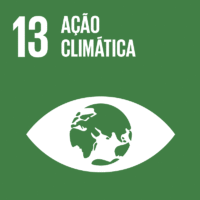Ciência_Iscte
Publicações
Descrição Detalhada da Publicação
Climate Justice and Toxic Environments in Latin America: Role for Environmental Social Work
Título Livro
Social Work and Climate Justice International Perspectives
Ano (publicação definitiva)
2023
Língua
Inglês
País
Reino Unido
Mais Informação
Web of Science®
Esta publicação não está indexada na Web of Science®
Scopus
Esta publicação não está indexada na Scopus
Google Scholar
Esta publicação não está indexada no Google Scholar
Esta publicação não está indexada no Overton
Abstract/Resumo
Climate justice, a concept, and a social movement recognizes that our dependence on fossil fuels has unequally benefited the wealthiest countries while disproportionately affecting the poor and developing nations worldwide. The environmental crises of climate injustices put to the test the development model that gave rise to ecological damage and social inequalities, characterizing it as “politically unjust, culturally alienated, and ethically repulsive”. Marginalized groups are more exposed to flooding, prolonged droughts, and a deficit in basic sanitation due to their greater social and economic vulnerability. Such situations are further aggravated by the greater frequency and intensity of climate risks and hazards. Given this background, this chapter aims to systematize the community action initiatives of two countries in Latin America (Venezuela and Colombia) and show how social work through community practice can contribute to educating and advocating for change, in order to reduce impacts that lead to climate justice and supporting projects that create local solutions. Our methodological design includes an analysis of secondary sources, a meta-analysis of bibliographic research, and an applied Eco-social model through which we collected the vulnerable community voices. This chapter shows how Social Work is directly linked to climate issues and can promote climate justice related to human rights and sustainable development, mainly the UN’s Sustainable Development Goals 2030 (SDG2030).
This book argues that climate justice is an urgent and defining global challenge with long-term implications for poverty reduction, livelihoods, community well-being, and sustainable development.
It provides a thorough overview of both fundamental and new directions of knowledge and policy directions in this less debated area within environmental social work. The chapters of this book offer both global and cross-country perspectives via case studies from India, Nepal, Ukraine, South Africa, and the USA, providing greater understanding, evidence, and strategies to achieve the resilience of vulnerable communities based on climate justice principles.
It will be required reading for all scholars, students, and social work professionals as well as those working in sustainability and community development.
Agradecimentos/Acknowledgements
--
Palavras-chave
Climate Justice,Environment,Sustainability
Contribuições para os Objetivos do Desenvolvimento Sustentável das Nações Unidas
Com o objetivo de aumentar a investigação direcionada para o cumprimento dos Objetivos do Desenvolvimento Sustentável para 2030 das Nações Unidas, é disponibilizada no Ciência_Iscte a possibilidade de associação, quando aplicável, dos artigos científicos aos Objetivos do Desenvolvimento Sustentável. Estes são os Objetivos do Desenvolvimento Sustentável identificados pelo(s) autor(es) para esta publicação. Para uma informação detalhada dos Objetivos do Desenvolvimento Sustentável, clique aqui.

 English
English




